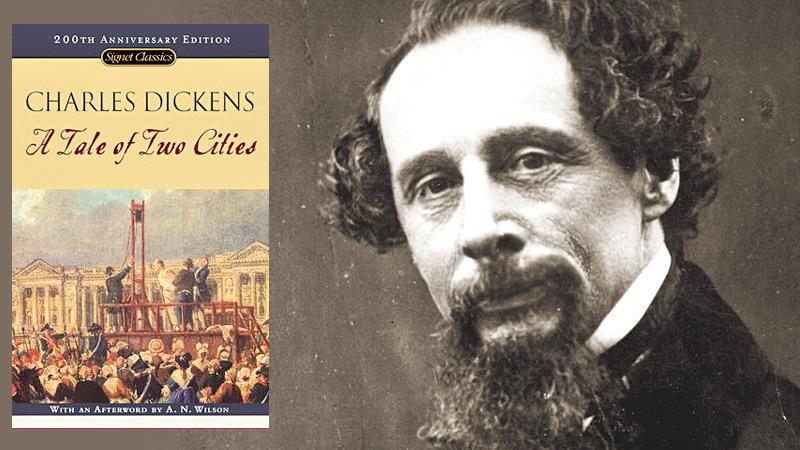
Charles Dickens needs no introduction.His contribution to the English literature is of immense significance. Dickens was born in Portsmouth of England. Even when he was 12, he found himself working as an apprentice in a workshop.
He once worked in a law firm and a newspaper office. His work as a journalist was quite interesting. Dickens’ early life had never been a bed of roses; he had to undergo a lot of hardships and tribulations in life.He rushed off his feet all day to live. It is popularly known that almost every renowned writer regards his childhood experiences as valuable gifts which can shape up his source of creativity.
Some critics say that the painful childhood experiences of Dickens enveloped a layer of lingering shadow on his heart and gave him both the good and evil moral balance in his heart. It was also the central reason for the solid foundation that Dickens laid for him to develop his spirit of humanitarianism.
Traumatised childhood experiences
Dickens’s enthusiasm on the British social life, his understanding of the suffering of the lower classes and his familiarity with the true characteristics of the bourgeoisie were shaped by his traumatised childhood experiences. As such, he gave life to his simple thinking on humanitarianism. He criticised all inhuman phenomena and tried his best to help the less fortunate people. Critics say, “Real life has improved his humanitarian qualities and has laid the foundation of life for literary creation”. Through his work, Dickens not only helped people but also aroused and inspired the sense of responsibility of people, while drawing the attention to the plight of the people on the bottom stratum of the society.
The unique feature of his thought of culture and moral is that it roughly consists of three points. Dickens in his writing defended human dignity and expected that the rich would find their conscience.
That is the initial point of cultural and moral ideas. The Chartist movement’s spirit of democracy, equality and freedom had a huge influence on Dickens initial works. In his writing, Dickens advocated the right of work place and happiness of all the workers.
In his novels, Dickens tried hard to satirise the farce of the Parliamentary elections, the hypocrisy of the religion, liars and other social evils, thedark side of educational institutions and the ruthless nature of the poor law in Great Britain during the time of his writing. Dickens believed in the mercy of the rich and expected that the rich would have conscience. The more he understood the real life, more he got gradually disappointed in the kind hearted rich. Secondly, he realised that the rich voluntarily finding their conscience was nearly impossible.
Dickens had a strong desire to transform society through the warmth of probation and the suffering of education. Dickens needed the administrator to be kind to people and as such both the rich and the poor would live happier with each other.
Humanitarian ideas
The third and the last point is that Dickens had a unique approach of expressing his humanitarian ideas by encouraging people to abandon evil deeds and cultivate good deeds. Albeit, Dickens was heavily disappointed in the bourgeoisie while being pessimistic, he continued his struggle of teaching the people of the style of abandoning evil and acquire the goodness with his pen.
Dickens’ “A Tale of Two Cities” is one of his most significant books where he outlined self-sacrifice, elimination of hatred, promoting love, encouraging forgiveness and altruism. The characters used by Dickens in “A Tale of Two Cities” are noteworthy where “Darnay” could be considered as kind nobility who automatically abandoned properties. ”Manette” is Dickens’s symbol of forgiveness who does not promote any revenge against enemy civilians. The altruistic young man who was for the others at the expense of his own life is Carlton.
In his “A Tale of Two Cities”, Dickens hugely and smartly interpreted the essence of humanitarianism as forgiveness,self-sacrifice, humanity and people’s kindness. Aspects such as greatness, miracle and strength were highly praised by Dickens. Moreover, a reader understands that Manette, the core of the family possessed a tremendous sense of justice.
He was rather brave enough to reveal the crimes, committed by the Evrémonde brothers. Albeit, trapped in figure circle for 18 years, he still believed in humanitarianism. Marquis brothers were immensely disliked by him. As he came to know that his daughter Lucy was in a deep love with Darnay who was a descendant of the Marquis, the pain that he had to bear was overwhelming.
Contradictions and pain
His contradictions and pain were not described by the author. Manette was utterly sad on the wedding of Lucy and Darnay, but he conquered his feelings. The author had taken a lot of space to describe as to how Manette was in Schizophrenia again where he neither recognised anyone nor remembered anything, just mechanical and ungraciously repeated shoemaking.
The author’s intention of giving this particular series of detailed micro description of Manette was to represent the pain and the contradictions of the doctor. In contrast, it could also be argued that he miserably suppressed his personal grudges.That made his pain worse and ended up being in Schizophrenia. A great father was shown to the reader.
Manette eventually got better and even accepted the offspring of the enemy which was indebted to his love for everybody. He was even described by the author as a saint living among mortals.
No matter whether he was a friend or an enemy, he treated everyone equally. No matter whether he was a killer or a victim of the prison, Manette silently did operations on anybody who needed his help. He was an ideal example of a humanist. Dickens wanted to tell the readers that pardoning and forbearance are an assurance of a happy and peaceful life.
